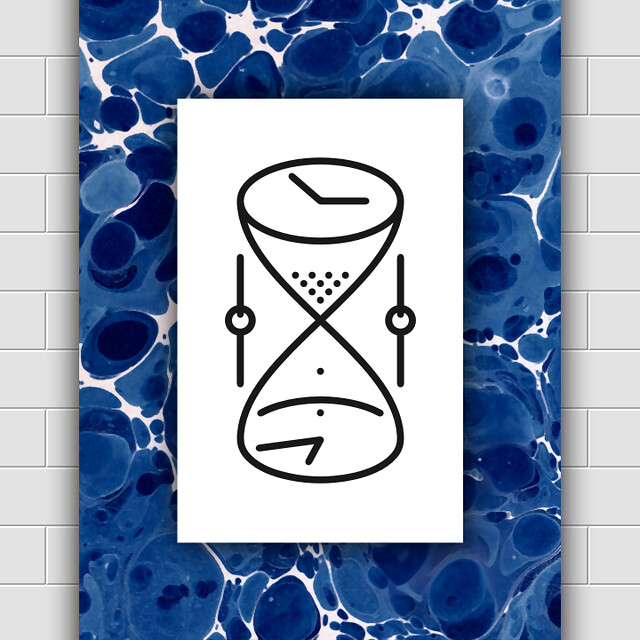
Image Credit: Kostya Sasquatch
What is the most precious thing that you own? Your home? Your car? Maybe an expensive watch or some jewelry? Nope, I can say with some confidence that the most valuable thing that you own is your time. This is the one thing that even with our manager skills none of us ever seem to have enough of and we would all like to find ways to get more of it. The biggest question that we all have to answer is just exactly where is our time going and are we wasting it?
How You Waste Your Time
Before we can start to get control over our time, we first have to come to an understanding of just exactly where it is all going. What we probably don’t realize is that there are a large number of tasks that we spend time doing that really have no lasting value for us. Using our manager training to realize what these tasks are is the first step in finding ways to take back our time.
One of the most wasteful things that many managers find themselves doing is sitting in unproductive or wasteful meetings. We have a tendency to accept any meeting invitation that is sent to us no matter who sent it or what the meeting is going to be about. What we need to do is to start to become more selective and before we accept that next meeting invitation determine if we care about what will be discussed and if we will be a valuable part of the meeting. If not, then don’t go. As though sitting through these types of meetings was not enough of a time suck, we can also waste a lot of time dealing with low-level interruptions that easily could have been handled by someone else. During the course of a day there are a lot of things that pop up demanding our attention. We don’t have to deal with all of them – this is what delegation is all about.
Our number one communication tool is email. What this means is that during an average day we will get a number of low-value emails. If we are not careful, we’ll spend too much time reading these emails and then crafting responses to them. We need to get better at spotting them and then skipping over them. Just like unwanted emails, the people that we work with often have no problems asking us to do things for them – sorta like a mini team building activity. All too often, we’ll stop what we are doing when they drop by and give them our full attention. What we need to start to do is to let them know that we are busy and that they should not interrupt us.
Although producing output is one of the ways that a manager’s productivity can be measured, the quality of that output is key. If we are spending our time writing reports that have no impact on the company’s bottom line and that no one is going to bother to read, then we are wasting our time. Likewise, if you are doing low-level business activities that the company could easily outsource at a much lesser cost to the business than your time then once again, your time is being wasted. I find that if there is something in the office that keeps breaking and you are the person that everyone goes to in order to fix it, then this is probably a waste of your time that could be better done by someone else.
How You Can Stop Wasting Your Time
So just exactly how much of your time do you think that you waste during an average week? Multiply your total number of hours that you have wasted this week by 50 weeks per year. That’s how many hours you are personally wasting on low-value work currently. Managers on the average discover that they are wasting 18 hours per week on average. That’s over 900 hours each year, or a full 22 working weeks a year that were wasted. Ouch!
What can we do about all of this wasted time? How can we get it back? We can agree that you are wasting around 18 hours a week on lower-level tasks. You fit in the high-value activities when you can–often when everyone has gone home, the office is quiet, and the phone has stopped ringing. However, by then you’re too tired to think. It’s almost like you are filling your plate at a buffet, where other people’s urgencies and high-calorie, low-nutrition tasks dominate your plate, leaving little room for your most valuable, and high-value (nutritious) activities.
The problem here is that you are making poor food choices and your day is all cake and no vegetables. In order to fix this problem, you are going to have to start thinking about your “plate” differently. Going forward, try to fill your time plate first with the highest-value activities, in structured blocks of your best time, so that no matter what you fill the other space with, you’ll get more of your highest-value work done in the best manner possible.
Doing things this way can have a big impact on how you spend your time. Your new plan for your to-do list should be “Eat your veggies first.” This simple shift in priorities will help you to be more productive, without you having to spend all your time at the office. By making these changes to what you choose to spend your time doing your new goal is to get the high-value stuff done at work, and then be able to go home at the end of the day and do all of the things that you really want to do.
What All Of This Means For You
If any of us were magically given three wishes, I’m pretty sure that at least one of those wishes would be for us to have more time in which to get things done. Since we don’t have any magic wishes that we can spend, as managers we are going to have to first discover where all of our wasted time is going and then come up with a way to get it back.
Wasting time turns out to be much easier to do than any of us would have ever imagined. A huge drain on our time can be the time that we spend sitting in meetings which don’t matter to us or in which we have nothing to contribute. Allowing what we are working on to be interrupted by low-level tasks is another good way to end up wasting a lot of time. Our primary way of communicating in the office is via emails and not all emails are important. Time spent reading and replying to unimportant emails can use up a lot of our time. Likewise, time spend on business activities that the business could pay someone else to do is not a good way to be spending your time. As a manager, you need to identify the important things that you should be working on and make sure that you schedule time to work on them before allocating any time to work on other things. This will allow you to become more productive.
As managers, we are the ones who have ultimate control over how we choose to spend our time. Since we have a limited amount of time to accomplish the work that we have been assigned to do, we need to make sure that we spend our time wisely. It can be all too easy for us to end up wasting a big chunk of our time if we are not careful. Understanding where our time is going is the first step in solving this problem. Once we have that taken care of, we can take steps to better use our time and by doing so we will find ourselves becoming more productive.
– Dr. Jim Anderson
Blue Elephant Consulting –
Your Source For Real World IT Management Skills™
Question For You: How much time each day should you allocate to working on your most important tasks?
P.S.: Free subscriptions to The Accidental IT Leader Newsletter are now available. Learn what you need to know to do the job. Subscribe now: Click Here!
What We’ll Be Talking About Next Time
Welcome to the 21st Century. For some reason everyone seems to be talking about artificial intelligence as of late. What’s the big deal? This stuff used to only exist in science fiction movies and now it sure seems like it is in the process of taking over the world. Managers are going to be affected by the arrival of artificial intelligence and so it sure looks like we are going to have to make sure that we have the manager skills to fully understand what is going on here.

